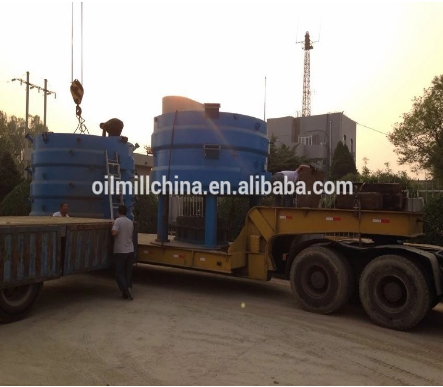Oct . 22, 2024 05:14 Back to list
Refined Vegetable Oil Production Units and Their Operational Efficiency
Refined Vegetable Oil The Essence of Production and Processing
Vegetable oil, a pivotal component of modern cooking and food production, has undergone significant transformation through refinement processes. Refined vegetable oil is not just a culinary staple but also plays a crucial role in various industries, from food manufacturing to cosmetics and biofuels. This article delves into the intricacies of vegetable oil refining, its benefits, and the operational dynamics of unit factories involved in its production.
Understanding Vegetable Oil Refinement
Vegetable oils are extracted from a variety of seeds and nuts, including soybeans, corn, cottonseed, sunflower, and palm. While crude vegetable oil is edible, it often contains impurities, free fatty acids, and undesirable flavors and odors. Refinement is the process that transforms crude oil into a clear, palatable, and stable product suitable for consumption and industrial use.
The refinement process typically consists of several stages degumming, neutralization, bleaching, and deodorization. Degumming involves removing phospholipids and other impurities by treating the oil with water or acid. Following this, neutralization eliminates free fatty acids through the addition of an alkali, resulting in a neutral oil. The bleaching stage involves the removal of color pigments and additional impurities using adsorbents, such as activated clay. Finally, deodorization is a steaming process that removes volatile compounds responsible for odors and tastes, yielding a bland oil favored in culinary applications.
The Role of Refined Vegetable Oil Factories
Refined vegetable oil factories are intricate facilities that integrate advanced technology and expertise in the oil refining process. These factories are equipped with machinery specifically designed for each stage of refinement, ensuring efficiency and quality control. Investment in modern technology has allowed these units to optimize yields while minimizing waste and energy consumption, reinforcing their importance in sustainable production practices.
The operational efficiency of these factories can be attributed to several factors
1. Automation and Control Systems Automated processes ensure consistent quality and optimize production rates. Advanced sensors monitor parameters like temperature, pressure, and flow rates, enabling timely adjustments.
vegetable oil refined unit factories

2. Quality Assurance Protocols Factories implement stringent quality control measures, conducting regular testing to ensure the final product meets safety and regulatory standards. This commitment to quality is crucial, as refined oils are intended for both food and industrial applications.
3. Sustainability Practices Modern vegetable oil refining facilities increasingly adopt eco-friendly practices. This includes recycling water used during processing, reducing carbon footprints, and utilizing by-products effectively, such as harnessing waste for biodiesel production.
4. Research and Development Continuous innovation is vital in the ever-evolving food industry. Research departments within these factories often work on enhancing oil extraction methods, improving refining techniques, and exploring new applications to meet consumer demands and health trends.
The Impact on the Industry and Consumers
Refined vegetable oils have become staples in households and industries worldwide. Cooked food's texture, shelf-life, and flavor can be profoundly influenced by the type of oil used. For consumers, affordable and widely accessible refined oils serve as a convenient option for cooking, baking, and frying, while also meeting dietary needs for healthier food choices.
Moreover, the versatility of refined vegetable oil extends beyond the kitchen. The food manufacturing sector relies heavily on these oils for producing snacks, margarine, and salad dressings, ensuring a steady demand. Additionally, refined vegetable oils are pivotal in cosmetic formulations, pharmaceuticals, and biodiesel production, showcasing their importance across multiple sectors.
Conclusion
Refined vegetable oil production is a sophisticated process that involves careful attention to detail from the extraction to the final product. Unit factories specializing in this domain have evolved into advanced facilities driven by technology, efficiency, and sustainability. Their contributions extend beyond the culinary world, impacting various industries and the economy as a whole. As consumer preferences continue to shift towards healthier and more sustainable options, the vegetable oil refining industry is poised to adapt and innovate, ensuring a bright future for this essential commodity.
-
Oil Processing Equipment - High-Efficiency Flaking Machine
NewsJul.25,2025
-
High-Efficiency Peanut Oil Refined Machine for Quality Oil Production Leading Exporters & Companies
NewsJul.08,2025
-
High Efficiency Sunflower Seed Oil Press – Leading Cooking Oil Press Machine Factories & Suppliers
NewsJul.08,2025
-
High-Efficiency Soybean Oil Press Machine – Leading Exporters & Reliable Companies
NewsJul.07,2025
-
High-Efficiency Seed to Oil Extractor – Reliable Extraction Machinery for Your Business
NewsJul.07,2025
-
High-Quality Pressing Screw of Oil Expeller for Efficient Oil Extraction Leading Exporters & Manufacturers
NewsJul.06,2025
